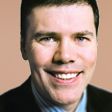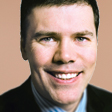Great Lone Ranger Funds
The good one-fund shops focus on making their clients' money grow alongside their own.

Profit and prosper with the best of Kiplinger's advice on investing, taxes, retirement, personal finance and much more. Delivered daily. Enter your email in the box and click Sign Me Up.
You are now subscribed
Your newsletter sign-up was successful
Want to add more newsletters?

Delivered daily
Kiplinger Today
Profit and prosper with the best of Kiplinger's advice on investing, taxes, retirement, personal finance and much more delivered daily. Smart money moves start here.

Sent five days a week
Kiplinger A Step Ahead
Get practical help to make better financial decisions in your everyday life, from spending to savings on top deals.

Delivered daily
Kiplinger Closing Bell
Get today's biggest financial and investing headlines delivered to your inbox every day the U.S. stock market is open.

Sent twice a week
Kiplinger Adviser Intel
Financial pros across the country share best practices and fresh tactics to preserve and grow your wealth.

Delivered weekly
Kiplinger Tax Tips
Trim your federal and state tax bills with practical tax-planning and tax-cutting strategies.

Sent twice a week
Kiplinger Retirement Tips
Your twice-a-week guide to planning and enjoying a financially secure and richly rewarding retirement

Sent bimonthly.
Kiplinger Adviser Angle
Insights for advisers, wealth managers and other financial professionals.

Sent twice a week
Kiplinger Investing Weekly
Your twice-a-week roundup of promising stocks, funds, companies and industries you should consider, ones you should avoid, and why.

Sent weekly for six weeks
Kiplinger Invest for Retirement
Your step-by-step six-part series on how to invest for retirement, from devising a successful strategy to exactly which investments to choose.
There's something special about single-fund shops -- the good ones, anyway. I have to qualify that because you can find some of the craziest managers running one-fund outfits,hoping to fool enough people into handing their money to a guy with a wacky investment strategy who runs the whole kit and caboodle from his garage. (Hint: If he says he derives his strategy from studying the behavior of bees, as one fund manager actually did, run away.) The good one-fund shops want to manage money, not people. They can focus on making their clients' money grow alongside their own. They're not interested in building an empire.
Fully focused. With but one fund to tend, the manager has no distractions, no need to hit a blowout number to maximize a bonus, and no conflict of interest that would lead him or her to sell out shareholders to a market timer, a marketing whiz or another individual with an agenda not aligned with the customer's.
Most important, I know the manager isn't going anywhere. If you own a fund from one of the big fund companies and you just lost your manager to a hedge fund or a round of musical chairs, you may be ready for a one-fund shop. Here are four of my favorites.
From just $107.88 $24.99 for Kiplinger Personal Finance
Become a smarter, better informed investor. Subscribe from just $107.88 $24.99, plus get up to 4 Special Issues

Sign up for Kiplinger’s Free Newsletters
Profit and prosper with the best of expert advice on investing, taxes, retirement, personal finance and more - straight to your e-mail.
Profit and prosper with the best of expert advice - straight to your e-mail.
Bob Torray founded his investment firm in 1972 and Torray fund (symbol TORYX) in 1990. Doug Eby joined him in 1992 -- so Eby has a "mere" 15 years' worth of experience. Torray and Eby hate to lose clients' money, so they take a long-term, value approach. The fund held up beautifully in the 2000Ð02 bear market, losing just half as much as the market as a whole. If you value that kind of downside protection over rally potential, then this fund could be a good fit for you. As you'd expect from a good one-fund shop, the managers do a fine job of aligning their interests with those of shareholders. They invest a lot of their own money in the fund, keep expenses low, try to minimize taxes and write intelligent shareholder letters.
Harry Burn and Gibbs Kane got started a little later than Bob Torray. They founded their firm in 1978 and have run Sound Shore fund (SSHFX) since its inception in May 1985. John DeGulis, an analyst at their shop since 1995, was made a co-manager of the fund in 2003. They employ a classic value style in which they look for companies trading well below their historic valuations and then try to find the ones that can come back. Current favorites are General Electric and Berkshire Hathaway. Once again, you get low turnover, a focused portfolio and modest costs. But the best sign of all is that the profit-sharing pool for the firm's employees goes straight into the mutual fund. They eat their cooking.
Nobody rides bandwagons at Jensen fund (JENIX). This fund's results have been tepid over the past five years because until recently, the large, steadily growing companies Jensen favors were unloved. However, I kind of like it when I find good managers using an unloved strategy. As the markets get back to steady growers, this fund will shine. Among the positives at Jensen: Long-term performance is still strong, expenses and trading costs are low, and taxable distributions are small.
Presidio fund (PRSDX) is a bit of a departure in that its manager is a little younger and has the help of only one analyst. So maybe it is run out of a garage, but I can assure you that the manager isn't crazy. Kevin O'Boyle produced excellent results during his nine years running Meridian Value before striking out on his own and starting a fund two years ago. He looks for roughed-up stocks that have a shot at rebounding. That's a tricky business, but he does it well. With just $74 million in assets, this small fund, whose style is a mixture of value and growth, figures to have plenty of room to maneuver.
Columnist Russel Kinnel is director of mutual fund research for Morningstar and editor of its monthly FundInvestor newsletter.
Profit and prosper with the best of Kiplinger's advice on investing, taxes, retirement, personal finance and much more. Delivered daily. Enter your email in the box and click Sign Me Up.

-
 Dow Leads in Mixed Session on Amgen Earnings: Stock Market Today
Dow Leads in Mixed Session on Amgen Earnings: Stock Market TodayThe rest of Wall Street struggled as Advanced Micro Devices earnings caused a chip-stock sell-off.
-
 How to Watch the 2026 Winter Olympics Without Overpaying
How to Watch the 2026 Winter Olympics Without OverpayingHere’s how to stream the 2026 Winter Olympics live, including low-cost viewing options, Peacock access and ways to catch your favorite athletes and events from anywhere.
-
 Here’s How to Stream the Super Bowl for Less
Here’s How to Stream the Super Bowl for LessWe'll show you the least expensive ways to stream football's biggest event.
-
 Best Banks for High-Net-Worth Clients
Best Banks for High-Net-Worth Clientswealth management These banks welcome customers who keep high balances in deposit and investment accounts, showering them with fee breaks and access to financial-planning services.
-
 Stock Market Holidays in 2026: NYSE, NASDAQ and Wall Street Holidays
Stock Market Holidays in 2026: NYSE, NASDAQ and Wall Street HolidaysMarkets When are the stock market holidays? Here, we look at which days the NYSE, Nasdaq and bond markets are off in 2026.
-
 Stock Market Trading Hours: What Time Is the Stock Market Open Today?
Stock Market Trading Hours: What Time Is the Stock Market Open Today?Markets When does the market open? While the stock market has regular hours, trading doesn't necessarily stop when the major exchanges close.
-
 Bogleheads Stay the Course
Bogleheads Stay the CourseBears and market volatility don’t scare these die-hard Vanguard investors.
-
 The Current I-Bond Rate Is Mildly Attractive. Here's Why.
The Current I-Bond Rate Is Mildly Attractive. Here's Why.Investing for Income The current I-bond rate is active until April 2026 and presents an attractive value, if not as attractive as in the recent past.
-
 What Are I-Bonds? Inflation Made Them Popular. What Now?
What Are I-Bonds? Inflation Made Them Popular. What Now?savings bonds Inflation has made Series I savings bonds, known as I-bonds, enormously popular with risk-averse investors. How do they work?
-
 This New Sustainable ETF’s Pitch? Give Back Profits.
This New Sustainable ETF’s Pitch? Give Back Profits.investing Newday’s ETF partners with UNICEF and other groups.
-
 As the Market Falls, New Retirees Need a Plan
As the Market Falls, New Retirees Need a Planretirement If you’re in the early stages of your retirement, you’re likely in a rough spot watching your portfolio shrink. We have some strategies to make the best of things.